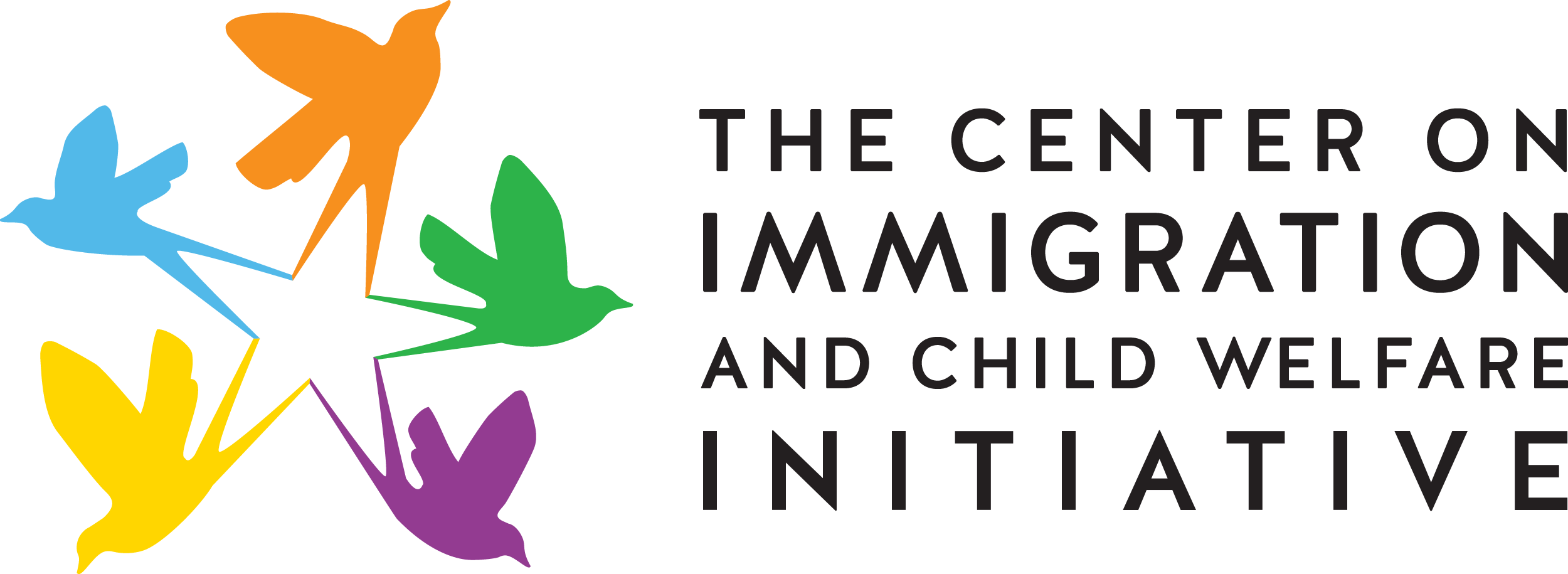The mission of CICW is to improve programs and policies related to immigrant children and families involved in the public child welfare system.
Position Statement
CICW believes that child welfare services should be available to all children, regardless of their immigration status or the status of their parents. Immigrant children and children from immigrant families who are involved in the child welfare system should be afforded services that will address their needs for safety, permanency, and well-being.
Professionals serving this vulnerable population should be informed about cultural considerations, immigration policies, and best practices. Child welfare agencies need to address the unique barriers that affect immigrant children’s and families’ abilities and rights to access services. Agency actions should also address other social issues that impact immigrant families in unique ways, including domestic violence; child abandonment and exploitation; housing, food, and medical services availability; and availability of culturally and linguistically relevant services.
CICW also advocates for humane policies and protections for children and families impacted by immigration investigations, arrests, and detention. The effects of separating families need to be considered in planning and providing services to families with mixed immigration statuses.



The Center on Immigration and Child Welfare Initiative (CICW) is a coalition of individuals and organizations focused on the intersection of immigration and child welfare
The CICW serves as a resource to learn from the knowledge and strategies of colleagues, and participates in collaborative efforts to improve services for immigrant families in the child welfare system.
The CICW has three areas of focus:
- Research
- Policy and advocacy
- Promising practices
Membership is diverse and consists of researchers, legal professionals, practitioners and administrators from state and federal agencies, immigrant service providers, children’s advocates, and foundation staff.
Guiding Principles
- The migration of children and families to the United States is a very important, but largely unaddressed, issue affecting the child welfare system.
- Immigrant children who are involved in the programs that provide child protection and child welfare services must be afforded services that will address their needs for safety, permanency and well-being.
- Child welfare services should be available to all children, regardless of immigration status.
- Federal, state, and local policies should encourage full integration of immigrant families into U.S. society through an expanded delivery of child welfare services.
- All child welfare agencies and courts, and the professionals who work within these settings, must, individually and through their membership organizations, become better informed about immigration laws and best practices affecting the immigrant children and families they are serving.
- Delivering services to migrating children and families should be a focus at major national child welfare conferences, in the work of the federal child welfare resource centers, and in new research and demonstration projects.
- The roots and causes of migration issues impacting child welfare cannot begin to be resolved unless collaboration with other countries exists. The issues that impact U.S. systems do not start and stop at our borders, but are the result of larger, more complex problems that need to involve transnational activities and a global approach.

Created by the participants at the Migration: A Critical Issue for Child Welfare roundtable convened by the American Humane Association and Loyola University Chicago, Chicago, IL, July 26, 2006, with revisions by the members in Washington, DC, February 25, 2007.

